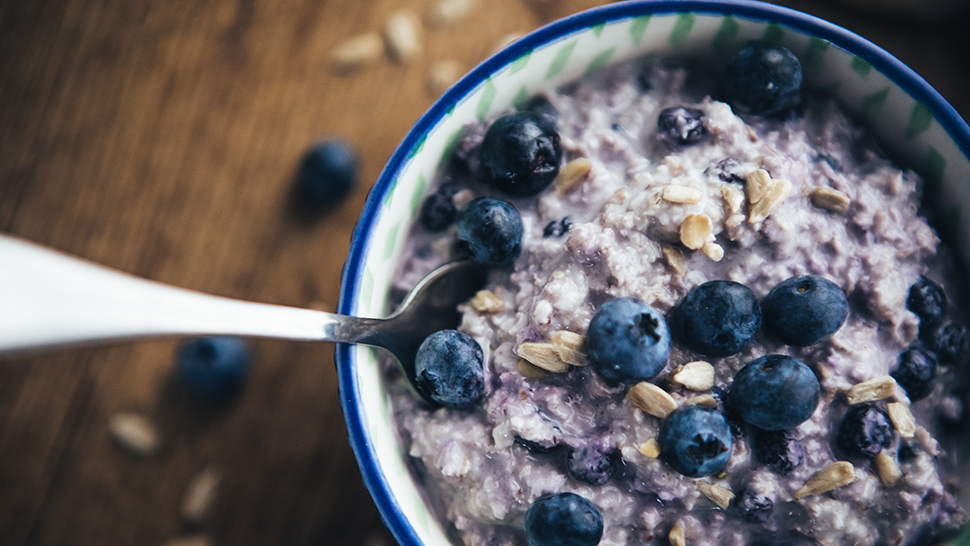
Let’s be real: When life gets overwhelming, it’s much easier to reach for a candy bar than it is a bowl of vegetables. But the foods you are more inclined to reach for may actually exacerbate stress rather than control it. While filling your plate with comfort foods may feel good in the moment, they actually can contribute to increased stress, physiologically and emotionally. So next time you feel overextended, tame the tension with these foods and drinks.
- Start your day with a bowl of warm oatmeal. Comforting and filled with fiber, oatmeal gives you consistent energy and can quell carb cravings when you’re stressed. Cortisol — a hormone that is released when we are stressed — increases blood glucose and reduces the body’s ability to use sugar by reducing insulin sensitivity. Foods filled with fiber can help slow digestion and stifle the effects of stress.
- Fill your bowl with spinach. Leafy greens, particularly spinach, are a rich source of magnesium. Magnesium deficiency has been linked to increased stress response and disrupted sleep patterns (which can worsen stress). Other magnesium-rich foods include whole grains, beans, quinoa, avocado, almonds, and even dark chocolate.
- Snack on dried chickpeas. When you’re craving something crunchy, grab a handful of dried chickpeas — which come in both savory and sweet flavors (or, make your own!). Not only are they filled with fiber and magnesium, two nutrients that may help bust stress, the act of snacking on something crunchy can also help crush the effects of stress.
- Eat more nuts and seeds. Nuts and seeds are filled with zinc, which may play a role in how the brain and body responds to stress. Top your morning oatmeal, add to a trail mix for a snack, or make your own energy bars.
- Sip on herbal tea. Just thinking about sipping something warm brings a sense of calm, doesn’t it? Chamomile tea has been linked to reduced anxiety and decaffeinated green tea was shown to improve sleep quality. Taking a few moments to stop what you’re doing and sip slowly may be just what the doctor ordered.
No one is immune to stress, but how you handle it can make a meaningful difference in your day. Eating balanced meals, getting enough sleep, exercising regularly, and taking time to get outside can also help reduce stress.